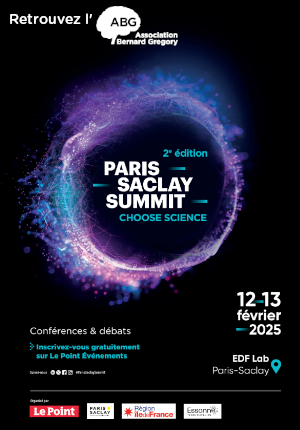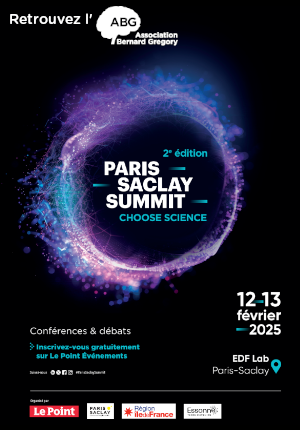Green chemistry applied to the synthesis of organic-inorganic composite nanomaterials for thermoelectric applications
| ABG-127937 | Sujet de Thèse | |
| 15/01/2025 | Contrat doctoral |
- Chimie
- Energie
- Matériaux
Description du sujet
Thermoelectric materials convert heat into electricity (Seebeck effect) and vice versa (Peltier effect), offering a solution to reduce environmental impact and serve as alternatives to refrigerants. Their efficiency is measured by the figure of merit ZT = S2σT/κ , where S is the Seebeck coefficient, σ is the electrical conductivity, κ is the thermal conductivity, and T is the temperature. While the best industrial materials achieve a ZT around 1, large-scale deployment is hindered by high costs, weight, and the scarcity and toxicity of certain elements (tellurium, selenium). Thus, environmentally friendly solutions are urgently needed to address energy challenges and develop sustainable refrigeration systems.
To tackle this issue, this PhD project aims to develop high-performance organic-inorganic thermoelectric composites (rigid or flexible) that combine the advantages of polymers, such as their low thermal conductivity κ and light weight, with the remarkable properties of inorganic nanostructures, such as their high power factor (S2σ). It will therefore be essential to finely control the organic-inorganic interactions to judiciously combine the properties of each component. To achieve this, a broad library of organic building blocks will be explored alongside a model inorganic building block. Optimization of this system can be achieved through strategies involving i) Band structure engineering to adjust the electronic levels between the organic and inorganic components (channeling, filtering, or injection of charge carriers) ii) Nano-engineering to scatter a wide spectrum of phonons and reduce thermal conductivity.
In this context, the thesis work will involve the following:
- Synthesize inorganic nano-objects in solution, graft them in situ, and disperse them in an organic matrix.
- Synthesize organic-inorganic composites using an innovative one-pot approach with nano-reactors.
- Shape the composites using drop casting/spin coating techniques.
- Characterize their structural, microstructural, chemical, and physical properties using advanced techniques (XRD, DLS, IR, Raman, SEM, HR-TEM, ICP, EDX, DSC, etc.).
### FR ###
Les matériaux thermoélectriques convertissent la chaleur en électricité (effet Seebeck) et inversement (effet Peltier), offrant ainsi une solution pour réduire l’impact environnemental et proposer des alternatives aux fluides frigorigènes. Leur efficacité est mesurée par le facteur de mérite ZT = S2σT/κ où S représente le coefficient de Seebeck, σ la conductivité électrique, κ la conductivité thermique et T la température. Bien que les meilleurs matériaux industriels atteignent un ZT de l’ordre de 1, leur déploiement à grande échelle est limité par leur coût, leur poids, la rareté et la toxicité de certains éléments (tellure, sélénium). De nouvelles solutions respectueuses de l’environnement sont donc nécessaires pour répondre aux enjeux énergétiques et/ou développer des systèmes de réfrigération durables.
Pour répondre à cette problématique, ce sujet de thèse a pour objectif de développer des composites thermoélectriques organiques-inorganiques (rigides ou flexibles) performants qui combinent les avantages des polymères, tels que leur faible conductivité thermique κ et leur légèreté, avec les propriétés remarquables des nanostructures inorganiques, telles que leur facteur de puissance élevé (S2σ). Il sera donc nécessaire de contrôler finement les interactions organique-inorganique afin de combiner judicieusement les propriétés de chacune des briques. Pour y parvenir, une large bibliothèque de briques organiques sera explorée avec une brique inorganique modèle. L’optimisation de ce système pourra être atteint au travers de stratégies i) d’ingénierie des structures de bandes afin d’ajuster les niveaux électroniques entre ces briques organiques et inorganiques (canalisation, filtration ou injection de porteurs de charge) ii)de nano-ingénierie afin de diffuser un large spectre de phonons et diminuer la conductivité thermique.
Dans ce contexte, le travail de thèse sera le suivant :
- Synthétiser des nano-objets inorganiques en solution, de les greffer in-situ et de les disperser dans une matrice organique
- Synthétiser des composites organique – inorganique par une approche innovante one-pot à l’aide de nano-réacteurs.
- Mettre en forme les composites par drop casting/spin coating
- Caractériser leurs propriétés structurales, microstructurales, chimiques, physiques en utilisant des techniques avancées (DRX, DLS, IR, Raman, MEB, HRMET, ICP, EDX, DSC…).
Prise de fonction :
Nature du financement
Précisions sur le financement
Présentation établissement et labo d'accueil
The University of Montpellier, founded in 1289, is one of the oldest universities in the world, blending tradition and innovation. Ranked among the top institutions, it provides an excellent environment for multidisciplinary research. Located in the heart of a vibrant and sunny city, it attracts students and researchers from around the globe.
The PhD will take place within the ICGM research institute (~400 members). Situated at the heart of the Balard Chemistry Pole, the ICGM is recognized as a center of excellence. It focuses on cutting-edge research in chemistry, tackling key challenges in energy, health and sustainable development, as well as addressing critical societal issues.
Intitulé du doctorat
Pays d'obtention du doctorat
Etablissement délivrant le doctorat
Profil du candidat
Background in chemistry or materials science and demonstrate strong motivation for experimental solution chemistry
Vous avez déjà un compte ?
Nouvel utilisateur ?
Vous souhaitez recevoir nos infolettres ?
Découvrez nos adhérents
 ADEME
ADEME  ONERA - The French Aerospace Lab
ONERA - The French Aerospace Lab  MabDesign
MabDesign  ANRT
ANRT  Groupe AFNOR - Association française de normalisation
Groupe AFNOR - Association française de normalisation  Laboratoire National de Métrologie et d'Essais - LNE
Laboratoire National de Métrologie et d'Essais - LNE  PhDOOC
PhDOOC  Institut Sup'biotech de Paris
Institut Sup'biotech de Paris  Généthon
Généthon  CASDEN
CASDEN  Tecknowmetrix
Tecknowmetrix  Ifremer
Ifremer  TotalEnergies
TotalEnergies  Aérocentre, Pôle d'excellence régional
Aérocentre, Pôle d'excellence régional  SUEZ
SUEZ  Nokia Bell Labs France
Nokia Bell Labs France  MabDesign
MabDesign  CESI
CESI  Institut de Radioprotection et de Sureté Nucléaire - IRSN - Siège
Institut de Radioprotection et de Sureté Nucléaire - IRSN - Siège






